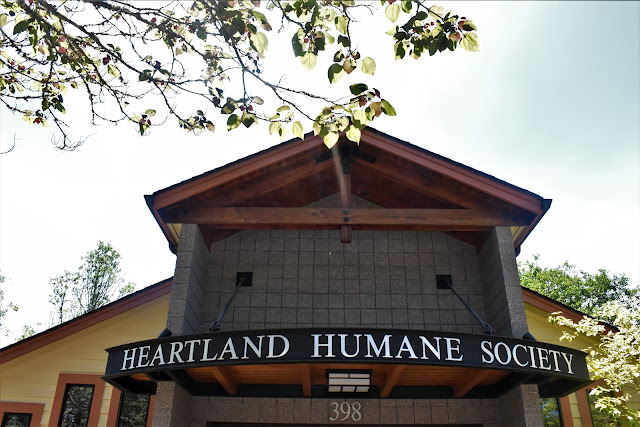LBCC: A Pesticide-Free Campus
 |
| Photo Courtesy of USDA |
What you may not notice though, or at the very least, not pay much attention to, is the bright yellow dandelions that lay among the tulips, or the green leafy plants that pop up in between cracks in the sidewalk.
At the start of 2012, LBCC began its transition into a fully organic landscape management campus. While this decision was the result of a state law commonly referred to as the Oregon IPM (Integrated Pest Management), LBCC kept the ball rolling by going above and beyond what the law required.
According to lead groundskeeper Sam Bruch, “This law greatly limits the type of chemical pesticides allowable for use on school grounds… the law also states that pesticides are not to be used for purely aesthetic reasons.”
While they could have found loopholes in the law and kept using some chemicals, they decided to take the initiative and become a fully organically landscaped campus. While this decision didn't change much in the way of Bruch’s day-to-day duties as a groundskeeper, he still mowed the lawn and pruned the trees, it did give him an opportunity to think creatively about how to deal with common issues.
“Being creative generally involves looking for the source of an issue and addressing it, rather than addressing the signs or symptoms of the issue,” said Bruch. “For example, rather than spraying the weeds growing in cracks in concrete, we’d figure out an effective way to seal those cracks.”
The college’s budget saw a minimal difference with this new initiative, and the use of organic solutions has more benefits than problems. Bruch explains that as of right now, they are still in the transition stages, and have not yet reached their goals of doing everything as eco-friendly as possible. The team of groundskeeping employees at LBCC is constantly looking for and creating new and better ways to manage weeds, create a more natural habitat for native plants, and lessen their environmental footprint. Reducing water usage, as well as mowing are being looked at as ways to achieve a smaller footprint.
For students and staff, the status of a fully organic campus means great things.
“Being pesticide-free means eliminating a number of potential health risks from the environment. People can pick a flower, or eat their lunch on the lawn, knowing that they are not coming into contact with a herbicide, fungicide, or insecticide,” said Bruch
Beyond this, the biodiversity that is brought on by having an organic landscape -- plants, insects and wildlife -- have real and positive benefits.
“Conventionally managed landscapes are often sterile and uninspiring,” said Bruch.
Dave Henderson, LBCC’s Vice President said “The bottom line for the college is that we provide a safe environment for our students, staff, and campus visitors. If that means having a few more weeds in lawns and flower beds, that is a price we are willing to pay in exchange for the increased safety.”
Next time you are walking or skipping along campus, take a moment to look at the flowers and relax in the lawn, knowing you are doing so in a completely pesticide-free campus.
At a glance:
Subject: As of 2012, LBCC has been transitioning into a pesticide-free campus.
What: The campus is now pesticide-free and moving to use more organic solutions for managing weeds and the grounds.
Budget: The budget has had no change.
For more information: contact Lead Groundskeeper Sam Bruch at bruchs@linnbenton.edu or in the Service Center, SC-101
Online Links:
www.beyondpesticides.org/resources/state-pages/or/school-policies
www.epa.gov/pesticide-science-and-assessing-pesticide-risks/assessing-human-health-risk-pesticides
www.puresolutions.com/pure-page/pure-solutions-faq/what-is-organic-lawn-management/
At the start of 2012, LBCC began its transition into a fully organic landscape management campus. While this decision was the result of a state law commonly referred to as the Oregon IPM (Integrated Pest Management), LBCC kept the ball rolling by going above and beyond what the law required.
According to lead groundskeeper Sam Bruch, “This law greatly limits the type of chemical pesticides allowable for use on school grounds… the law also states that pesticides are not to be used for purely aesthetic reasons.”
While they could have found loopholes in the law and kept using some chemicals, they decided to take the initiative and become a fully organically landscaped campus. While this decision didn't change much in the way of Bruch’s day-to-day duties as a groundskeeper, he still mowed the lawn and pruned the trees, it did give him an opportunity to think creatively about how to deal with common issues.
“Being creative generally involves looking for the source of an issue and addressing it, rather than addressing the signs or symptoms of the issue,” said Bruch. “For example, rather than spraying the weeds growing in cracks in concrete, we’d figure out an effective way to seal those cracks.”
The college’s budget saw a minimal difference with this new initiative, and the use of organic solutions has more benefits than problems. Bruch explains that as of right now, they are still in the transition stages, and have not yet reached their goals of doing everything as eco-friendly as possible. The team of groundskeeping employees at LBCC is constantly looking for and creating new and better ways to manage weeds, create a more natural habitat for native plants, and lessen their environmental footprint. Reducing water usage, as well as mowing are being looked at as ways to achieve a smaller footprint.
For students and staff, the status of a fully organic campus means great things.
“Being pesticide-free means eliminating a number of potential health risks from the environment. People can pick a flower, or eat their lunch on the lawn, knowing that they are not coming into contact with a herbicide, fungicide, or insecticide,” said Bruch
Beyond this, the biodiversity that is brought on by having an organic landscape -- plants, insects and wildlife -- have real and positive benefits.
“Conventionally managed landscapes are often sterile and uninspiring,” said Bruch.
Dave Henderson, LBCC’s Vice President said “The bottom line for the college is that we provide a safe environment for our students, staff, and campus visitors. If that means having a few more weeds in lawns and flower beds, that is a price we are willing to pay in exchange for the increased safety.”
Next time you are walking or skipping along campus, take a moment to look at the flowers and relax in the lawn, knowing you are doing so in a completely pesticide-free campus.
At a glance:
Subject: As of 2012, LBCC has been transitioning into a pesticide-free campus.
What: The campus is now pesticide-free and moving to use more organic solutions for managing weeds and the grounds.
Budget: The budget has had no change.
For more information: contact Lead Groundskeeper Sam Bruch at bruchs@linnbenton.edu or in the Service Center, SC-101
Online Links:
www.beyondpesticides.org/resources/state-pages/or/school-policies
www.epa.gov/pesticide-science-and-assessing-pesticide-risks/assessing-human-health-risk-pesticides
www.puresolutions.com/pure-page/pure-solutions-faq/what-is-organic-lawn-management/



Comments
Post a Comment